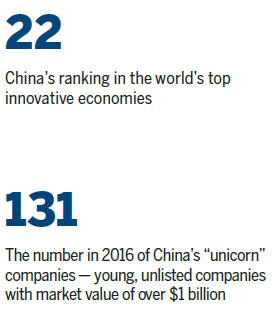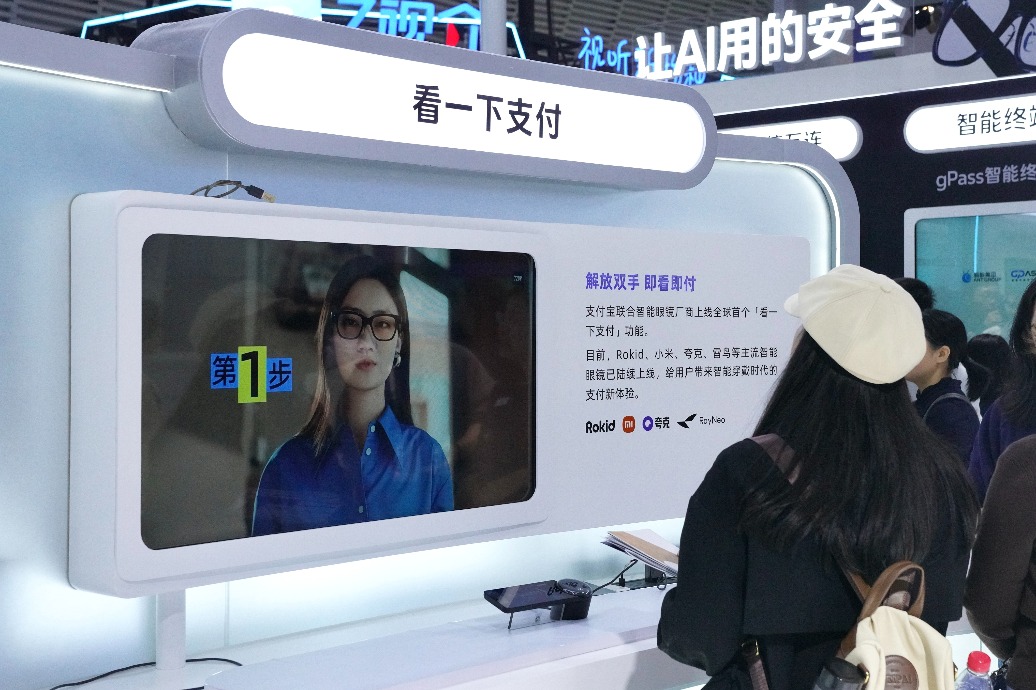China rises up the world league for innovation

BEIJING - China has moved up the list of the world's top 25 innovative economies, rising three notches from 25 to 22, with strong performance in several indicators, according to the latest Global Innovation Index.
In 2016, China was the first middle-income country to make the list.
The launch of its first X-ray space telescope to observe black holes, the development of the world's first quantum computing machine, the debut of its homegrown C919 passenger jet and the successful sampling of combustible ice have made headlines in recent months, highlighting China's technological innovations.
Jointly released by the World Intellectual Property Organization, Cornell University and INSEAD, the 2017 Global Innovation Index is its 10th edition.
The rankings are a leading tool for business executives, policymakers and others seeking insights about the state of global innovation.
A closer look into the general index shows that China moved up one spot to 16th in innovation quality, retaining its position for the fifth consecutive year as the top middle-income economy and edging closer to high-income economies.

The report showed that China tops in a number of subrankings, including domestic market scale, human resources, patents by origin, high-tech exports and industrial designs by origin.
The world's second-largest economy was once seen as an imitator and the "world's factory", churning out mountains of low-quality goods, but it is becoming capable of producing innovative products and ideas.
China's qualified patents exceeded 1 million last year, making it the third country after the United States and Japan to join the world's million patents club.
Meanwhile, the number of "unicorn" companies in China - young, unlisted companies with a market value of over $1 billion (881 million euros; £780 million)-rose from 70 in 2015 to 131 in 2016, most of which are high-tech firms, according to the Ministry of Science and Technology.
Wu Wensheng, executive deputy head with Great Wall Strategic Consultants, a leading private think tank, attributes China's innovation progress to the country's large talent pool, growing investment in research and development, and government policy support.
Innovation is at the core of the country's 13th Five-Year Plan (2016-20), which aims for China to become an "innovative nation" by 2020, an international leader in innovation by 2030 and a world powerhouse of scientific and technological innovation by 2050.
Xinhua
(China Daily Africa Weekly 06/30/2017 page28)
Today's Top News
- Crossing a milestone in the journey called Sinology
- China-Russia media forum held in Beijing
- Where mobility will drive China and the West
- HK community strongly supports Lai's conviction
- Japan paying high price for PM's rhetoric
- Japan's move to mislead public firmly opposed






























